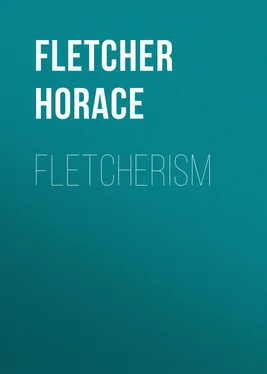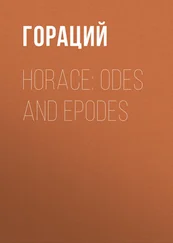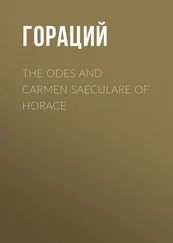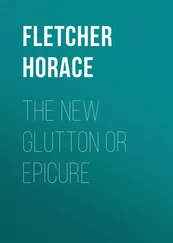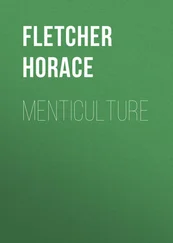Horace Fletcher - Fletcherism
Здесь есть возможность читать онлайн «Horace Fletcher - Fletcherism» — ознакомительный отрывок электронной книги совершенно бесплатно, а после прочтения отрывка купить полную версию. В некоторых случаях можно слушать аудио, скачать через торрент в формате fb2 и присутствует краткое содержание. Жанр: foreign_antique, foreign_prose, на английском языке. Описание произведения, (предисловие) а так же отзывы посетителей доступны на портале библиотеки ЛибКат.
- Название:Fletcherism
- Автор:
- Жанр:
- Год:неизвестен
- ISBN:нет данных
- Рейтинг книги:3 / 5. Голосов: 1
-
Избранное:Добавить в избранное
- Отзывы:
-
Ваша оценка:
- 60
- 1
- 2
- 3
- 4
- 5
Fletcherism: краткое содержание, описание и аннотация
Предлагаем к чтению аннотацию, описание, краткое содержание или предисловие (зависит от того, что написал сам автор книги «Fletcherism»). Если вы не нашли необходимую информацию о книге — напишите в комментариях, мы постараемся отыскать её.
Fletcherism — читать онлайн ознакомительный отрывок
Ниже представлен текст книги, разбитый по страницам. Система сохранения места последней прочитанной страницы, позволяет с удобством читать онлайн бесплатно книгу «Fletcherism», без необходимости каждый раз заново искать на чём Вы остановились. Поставьте закладку, и сможете в любой момент перейти на страницу, на которой закончили чтение.
Интервал:
Закладка:
The more I tried to convince others, the more fully I realised from talking to friends how futile and well-nigh hopeless was the attempt to get credence and sympathy for my beliefs, scientifically well founded as I felt they were. For years it proved so; and I faced the fact that to pursue the campaign for recognition meant spending much money, putting aside opportunities to make profit in other and more agreeable directions, and no end of ridicule. Sometimes, during the daytime, when I was "sizing up" the situation in my mind, treating it with calm business judgment, it seemed nothing less than insane to waste any more time or money in trying to prove my contentions.
Fully three years passed before I received encouragement from any source of recognised authority. I went first to Professor Atwater, 2 2 Professor W. A. Atwater, of Connecticut, U.S.A., was, in his time, a respected authority in the field of human nutrition, and, as such, was selected by the editors of the Encyclopædia Britannica to write the chapters on Nutrition for the Encyclopædia .
who received me most politely, but when I told him my story he threw cold water on my enthusiasm. In our correspondence afterwards he was most cordial but in no way encouraging.
The frost became more and more repellent and benumbing.
Still I persisted. At last I got hold of my first convert: a medical man, ill and discouraged; a member of a family long distinguished in the medical profession. He was Doctor Van Someren, of Venice, Italy, where I had made my home and where I lived for some years. I induced him to organise an experiment with me. We enlisted a squad of men and induced them to take food according to my ideas. We also were fortunate enough to secure the co-operation of Professor Leonardi, of Venice.
In less than three weeks the sick physician found himself relieved of his acute ailments, and it would have taken several teams of horses to hold him back from preaching his discovery. 3 3 Dr. Van Someren's testimony is given as an Appendix to this volume; taken from The A.B. – Z. of Our Own Nutrition .
A little later, we transferred the field of experiment to the Austrian Tyrol, and tested our endurance qualities, only to find a capacity for work that was not before considered possible. Then Doctor Van Someren wrote his paper for the British Medical Association, which excited the interest of Professor Sir Michael Foster, of the University of Cambridge, England, and the first wave of scientific attention was set in motion.
CHAPTER II
First Critical Examination at Cambridge University, England – My Endurance Test at Yale University in America
One result of this powerful interest was a test of our theories made at Cambridge University, England, organised by Sir Michael Foster, who was then Professor of Physiology at the University, and conducted by Professor Francis Gowland Hopkins. The test was successful, proving our most optimistic claims, and the report of it was published.
The scientific world now began to turn its attention to my discoveries. Doctor Henry Pickering Bowditch, of Harvard Medical School, the dean of American physiologists, put the full weight of his respected influence into the work to secure for America the honour of completing the investigation; but it was not until the experiments at Yale University, in New Haven, that the first wide publicity was accorded. The story of this and subsequent experiments and their results is this: Professor Russell H. Chittenden was at the time President of the American Physiological Association, Director of the Sheffield Scientific School of Yale University, and the recognised leading physiological chemist of America. He invited me to the annual meeting of the Physiological Association at Washington, where I described the results in economy and efficiency, and especially in getting rid of fatigue of brain and muscle, obtained up to that time. But evidently to little purpose, as Professor Chittenden revealed to me at the close of the meeting. He said, in effect:
"Fletcher, all the men you have met at our meeting like you immensely, personally; but no one takes much stock in your claims, even with the endorsement of the Cambridge men; the test there was insufficient to be conclusive. If, however, you will come to New Haven and let us put you through an examination, our report will be accepted here. You will be either justified or disillusioned; and – I want to be frank with you – I think you will be disillusioned."
by Dr. Chittenden showed a daily average of 44.9 grams of proteid, 38.0 grams of fat, and 253 grams of carbohydrates, with a total average calorie value of 1,606 ( compare this with the Voit Diet Standard, page 109 Конец ознакомительного фрагмента. Текст предоставлен ООО «ЛитРес». Прочитайте эту книгу целиком, купив полную легальную версию на ЛитРес. Безопасно оплатить книгу можно банковской картой Visa, MasterCard, Maestro, со счета мобильного телефона, с платежного терминала, в салоне МТС или Связной, через PayPal, WebMoney, Яндекс.Деньги, QIWI Кошелек, бонусными картами или другим удобным Вам способом.
), and careful and thorough tests made at the Yale Gymnasium proved that, in spite of this relatively low ration, I was in prime physical condition.
Previously, as before stated, in the autumn of 1901, Dr. Van Someren had accompanied me to Cambridge for the purpose of having our claims closely investigated, with the assistance of physiological experts. The Cambridge and the Venice findings were fully confirmed at New Haven, and striking physical evidence was added by Doctor William Gilbert Anderson's examinations of me in the Yale Gymnasium. This latter test, described on page 24, was more practically important as an eye-opener to both doctors and laymen than were the laboratory reports. I personally showed endurance and strength in special tests superior to the foremost among the College athletes. This was without training and with comparatively small muscle; the superiority of the muscle lying in the quality and not in the amount of it.
Professor Chittenden then became intensely interested in the matter, as did also Professor Mendel; and the former suggested organising an experiment on a sufficiently large scale to prove universality of application or the reverse. He volunteered his services and the use of his laboratory facilities.
At this time, too, I became acquainted with General Leonard Wood 4 4 Now Chief of Staff.
and Surgeon-General O'Reilly, of the United States Army. I found both open to my evidence; and, in the case of General Wood, I learned that it was confirmed by his own experience while chasing Indians in the Western wilds. Through them President Roosevelt and Secretary Root became interested, and carte blanche was given General O'Reilly to use the War Department facilities, including the soldiers of the Hospital Corps, for assistance in the proposed experiment. 5 5 The full report of this famous experiment may be found in Professor Chittenden's book Physiological Economy in Nutrition ; but such small mention of indebtedness to Fletcherism was made, that Professor Irving Fisher, in the interest of practical Political Economy, organised a supplemental experiment, more normal than the first, to test the economic effects of Fletcherism, pure and simple. A brief account of this investigation is given on page 98. Professor Chittenden made amends, later on, by composing a physiological prose poem on the benefits and delights resulting from careful chewing and tasting of nutriment, which I quote in full in Chapter VII.
Интервал:
Закладка:
Похожие книги на «Fletcherism»
Представляем Вашему вниманию похожие книги на «Fletcherism» списком для выбора. Мы отобрали схожую по названию и смыслу литературу в надежде предоставить читателям больше вариантов отыскать новые, интересные, ещё непрочитанные произведения.
Обсуждение, отзывы о книге «Fletcherism» и просто собственные мнения читателей. Оставьте ваши комментарии, напишите, что Вы думаете о произведении, его смысле или главных героях. Укажите что конкретно понравилось, а что нет, и почему Вы так считаете.
